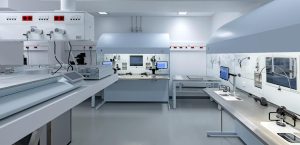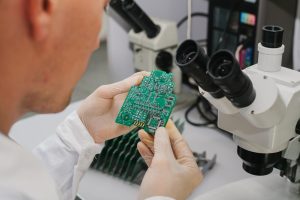In the dynamic landscape of healthcare, customization has become a pivotal trend, extending its reach to various domains, including the creation of medical kits. Custom medical kits, tailored to meet individual needs and specific medical situations, represent a significant advancement in personal and professional healthcare practices. This blog explores the evolution, benefits, applications, and considerations surrounding custom medical kits, highlighting their importance in the modern medical field.
The Evolution of Medical Kits
Medical kits have been an integral part of healthcare for centuries. From basic first aid kits used in homes and workplaces to comprehensive emergency response kits carried by paramedics, these tools have been designed to provide immediate care and support. Traditionally, medical kits have been standardized, containing a predetermined set of supplies aimed at addressing common medical emergencies. However, the growing emphasis on personalized healthcare has led to the development of custom medical kits, tailored to meet specific needs.
The shift from generic to custom medical kits can be attributed to several factors:
- Advancements in Medical Technology: Innovations in medical devices and diagnostic tools have allowed for more precise and varied treatment options, necessitating the customization of medical kits.
- Diverse Healthcare Needs: With an increasing number of people managing chronic conditions and unique health issues, there is a greater demand for personalized medical supplies.
- Enhanced Awareness and Education: Improved access to medical information has empowered individuals to take control of their healthcare, leading to a preference for custom solutions that address their specific needs.
Benefits of Custom Medical Kits
Custom medical kits offer numerous advantages over their standardized counterparts. These benefits extend to both healthcare providers and individuals, enhancing the overall quality of care and preparedness.
1. Personalization and Relevance
Custom medical kits are designed to address specific health concerns, making them highly relevant to the user. For instance, a diabetic patient can have a kit equipped with glucose meters, insulin syringes, and glucose tablets, while an individual with severe allergies can have a kit containing epinephrine auto-injectors and antihistamines. This level of personalization ensures that users have the right tools at their disposal when needed.
2. Enhanced Efficiency
Having a medical kit tailored to specific needs enhances efficiency during emergencies. In critical situations, time is of the essence, and rummaging through a generic kit for the right supplies can be detrimental. Custom kits streamline the process, allowing for quick and effective responses.
3. Improved Compliance and Usage
Custom medical kits can be designed with user-friendly instructions and organization, making it easier for individuals to use the supplies correctly. This can lead to improved compliance with medical protocols and better health outcomes.
4. Cost-Effectiveness
While the initial cost of a custom medical kit might be higher than a standard one, it can be more cost-effective in the long run. Custom kits reduce the need for unnecessary supplies and minimize waste, ensuring that every item in the kit is essential and used efficiently.
5. Professional Applications
For healthcare professionals, custom medical kits can be tailored to specific fields of practice. For example, a pediatrician’s kit will differ significantly from that of an orthopedic surgeon. Customization allows for a more organized and specialized approach to patient care.
Applications of Custom Medical Kits
Custom medical kits find applications in various settings, ranging from personal use to professional medical practices. Their versatility and adaptability make them invaluable in numerous scenarios.
1. Home Use
Personalized medical kits for home use can cater to individual or family health needs. These kits can include basic first aid supplies along with specific items for chronic conditions, such as blood pressure monitors, asthma inhalers, or allergy medications. Having a tailored kit at home ensures that immediate care can be administered effectively.
2. Travel
Travelers often face unique health challenges, such as exposure to different climates, foods, and potential health risks. Custom travel medical kits can be designed to address these challenges, containing items like motion sickness tablets, rehydration salts, prescription medications, and insect repellents. Such kits provide peace of mind and preparedness during trips.
3. Workplace
Workplaces have diverse medical needs based on the nature of the work and the risks involved. Custom medical kits for workplaces can include supplies for common injuries and illnesses relevant to that particular environment. For example, a construction site may need a kit with additional wound care supplies, while an office setting might prioritize ergonomic aids and basic first aid.
4. Professional Healthcare Settings
Healthcare professionals, including doctors, nurses, and paramedics, can benefit from custom medical kits designed for their specific fields. These kits can be organized based on the type of care provided, such as emergency response, surgery, or pediatric care. Customization ensures that professionals have immediate access to the necessary tools, enhancing patient care and outcomes.
5. Sports and Outdoor Activities
Athletes and outdoor enthusiasts often require specialized medical kits to address injuries and health issues related to physical activities. Custom sports medical kits can include items like muscle sprays, blister care, hydration solutions, and specific medications for conditions like asthma. These kits ensure that participants are well-prepared for any eventuality during their activities.
Considerations for Creating Custom Medical Kits
While custom medical kits offer numerous benefits, several considerations must be taken into account to ensure their effectiveness and safety.
1. Needs Assessment
The first step in creating a custom medical kit is to conduct a thorough needs assessment. This involves identifying the specific health concerns, potential risks, and medical conditions that the kit needs to address. Consulting with healthcare professionals can provide valuable insights during this process.
2. Quality and Reliability
The quality and reliability of the supplies included in the kit are paramount. It is essential to source items from reputable manufacturers and ensure that they meet medical standards. Inferior or expired products can compromise the effectiveness of the kit and pose health risks.
3. Organization and Accessibility
A well-organized kit enhances usability during emergencies. Items should be clearly labeled and arranged in a logical order for easy access. Including a guide or instructions for using each item can also be beneficial, especially for those without medical training.
4. Regular Updates and Maintenance
Medical needs can change over time, and supplies can expire. Regularly updating and maintaining the custom medical kit ensures that it remains relevant and functional. Users should periodically check expiration dates and replenish supplies as needed.
5. Training and Familiarity
Having a custom medical kit is only beneficial if the user knows how to use it effectively. Providing training on the use of the kit’s contents and familiarizing oneself with the supplies can significantly enhance preparedness and response during emergencies.
Conclusion
Custom medical kits represent a significant advancement in personalized healthcare, offering tailored solutions to meet individual needs and specific medical situations. From home use and travel to professional healthcare settings and sports activities, these kits provide numerous benefits, including enhanced efficiency, improved compliance, and cost-effectiveness. As the healthcare landscape continues to evolve, the demand for custom medical kits is likely to grow, driven by the need for personalized, efficient, and effective medical care. By understanding the considerations involved in creating and maintaining these kits, individuals and professionals can ensure that they are well-prepared to handle a wide range of medical situations, ultimately enhancing health outcomes and quality of life.











